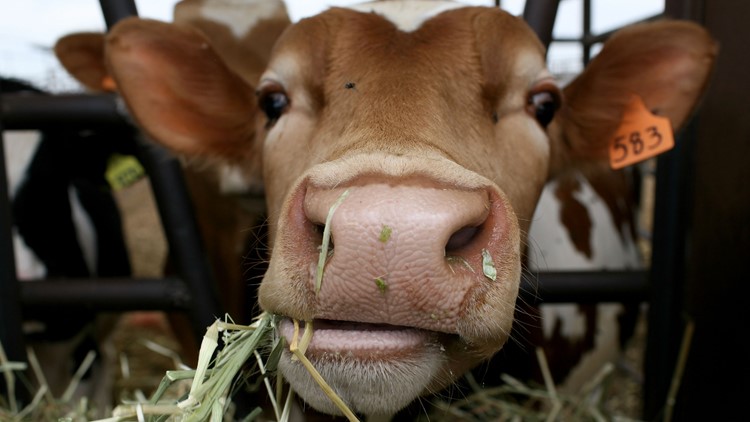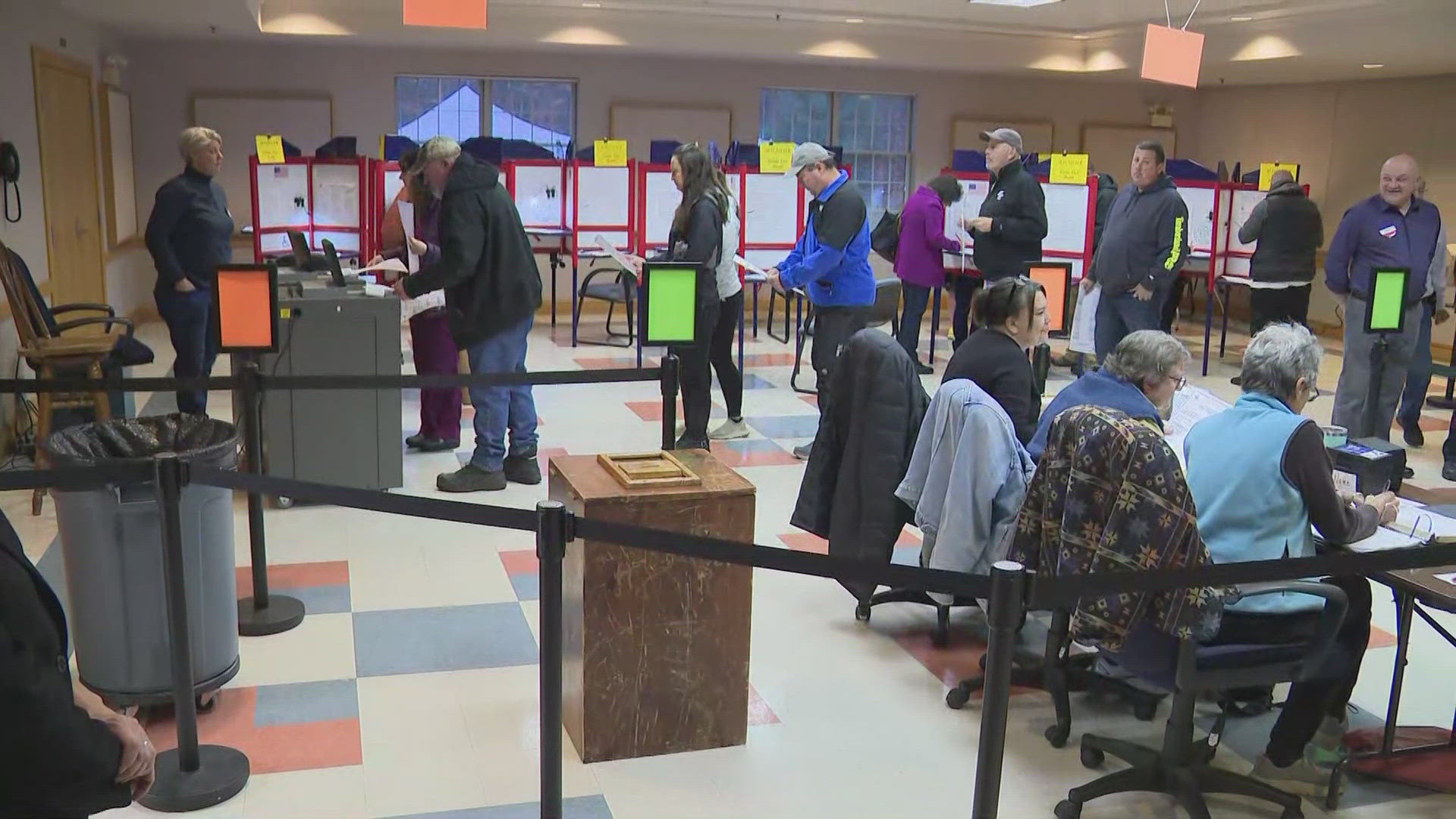The dairy industry is facing a global glut of milk, threatening to force farmers out of business amid calls to voluntarily lower production.
“We have friends in Ireland and Europe in the same situation. There’s just too much milk in the world,” said George Crave, president of Crave Brothers Farmstead Cheese in Waterloo, Wis.
In Wisconsin, home to much of the nation's dairy industry, producers are doing what they can to cope, including helping each other out. Farm cooperatives have told their members to think twice about adding more cows to their operations in a business climate awash in milk.
“We have to strategically plan for every drop now," said Joan Behr, spokeswoman for Foremost Farms USA, a Baraboo, Wis.-based cooperative owned by about 1,300 dairy farmers. "As our members look at their futures, and their plans for growth, they have to be in lock-step communication with us.”
Some say the flood of milk has resulted from decades of government policies that have encouraged large-scale agricultural production.
It’s been devastating for small farms, said Mark Kastel, co-founder of The Cornucopia Institute, an organic farming watchdog group based in Cornucopia, Wis.
“It has been death by a thousand cuts for Wisconsin family-scale dairy farms over the past few decades. An unfair and uneven playing field has allowed factory farms to muscle out” smaller operations, Kastel said.
Wisconsin dairy cows continue to produce more milk than ever before. In March, the total was 2.59 billion pounds, up 1.5% from a year earlier, and the 35th consecutive month of year-to-year increases.
Nationwide, a record 17.5 billion pounds was produced in the 23 major dairy states, up about 2% from March 2016, according to the U.S. Department of Agriculture.
Instead of constantly increasing production, dairy farms would be better off making sure there’s a market for their products first, said Darin Von Ruden, president of the Wisconsin Farmers Union.
“We seem to be doing just the opposite,” he said.
On Thursday, President Donald Trump reiterated that Canada was to blame for the current crisis, and that he’s seeking a solution. Canadians have faulted the U.S. for producing too much milk.
It’s a complex problem, according to dairy industry experts.
“In the short run, we have got to put the brakes on milk production. Processors are telling farmers, 'We can work through this ... but don’t compound the problem by expanding milk output dramatically,'" said Bruce Jones, an agricultural economist at University of Wisconsin-Madison.
Some dairy operations are helping each other out. One of Wisconsin's largest family-owned cheese factories, Mullins Cheese, has tossed a lifeline to eight dairy farms that were at risk of closing from a trade dispute with Canada.
“My field staff looked at them and said, ‘My gosh, these are great, wonderfully kept farms,’” said Bill Mullins, the Mosinee, Wis., cheese company's vice president. “I had an opportunity to help a few of them.”
But while Mullins has stepped up and signed contracts to buy milk from the eight family-owned dairy operations, dozens of others haven't been as fortunate. They face a May 1 deadline for when they no longer have a milk processor and could be forced to shut down.
Grassland Dairy Products of Greenwood, Wis., said it was dropping the farms because the company had lost millions of dollars in business when Canada changed its milk pricing policies in a way that favors Canadian farmers to the detriment of U.S. milk producers. State and federal lawmakers in the U.S. have been urgently seeking short-term solutions along with an investigation of trade pacts with Canada.
“This is devastating to the farmers, and it’s been really heartbreaking for us,” said Daniel Smith who oversees the Wisconsin Farm Center at the state Department of Agriculture, Trade and Consumer Protection.
The Farm Center has a “situation room” where staff members are talking with dairy plant owners, urgently trying to connect them with the farms threatened by closure.
“We have a game plan that takes us to May 1, and we know what benchmarks we have to meet every day. We are exploring every possibility,” Smith said.
The farmers who've been selling to Grassland are pleading for help from dairy plant owners across the state, saying if the plants that could each take on five more farms than they're buying from now, it would address the immediate crisis.
But most plants are running at full capacity and aren’t accepting more farms. If they did, some would be forced to sell the additional milk they processed at a loss — or dump it.
“It’s frustrating for everybody. The timing of this couldn’t be any worse,” said Mike North, president of the Dairy Business Association, based in Green Bay, Wis. “Everybody is working to try and get some solutions. But the clock is ticking louder by the second.”
Mark Heinze, a sixth-generation dairy farmer from Portage, Wis., said he’s very fortunate to have struck a deal with Mullins after Grassland canceled his milk contract.
Heinze said he’s worried about the remaining farms that haven’t yet found a milk buyer.
“It’s bittersweet for us because we know that other good farm families are still looking,” he said.
Farm groups are rallying to find buyers for the displaced milk. In some cases, assistance has come from other farmers who know they could face a similar dilemma.
“There will be neighbors helping neighbors. The fabric of our dairy industry is being tested now, but I think it will show its strength over the next couple of weeks,” North said.
Bill Jaehnert of Oconomowoc, Wis., said farmers have reached out to him through his cheese business, Artisan 3 Omega Products.
“I am rather close to this situation, as our phone is continually ringing with good Wisconsin dairy farmers looking for a place to sell their fluid milk,” Jaehnert said. “Dairy farming is a rather unique industry as the cows don’t have an on-and-off switch. The milk keeps coming and the cows keep eating."



